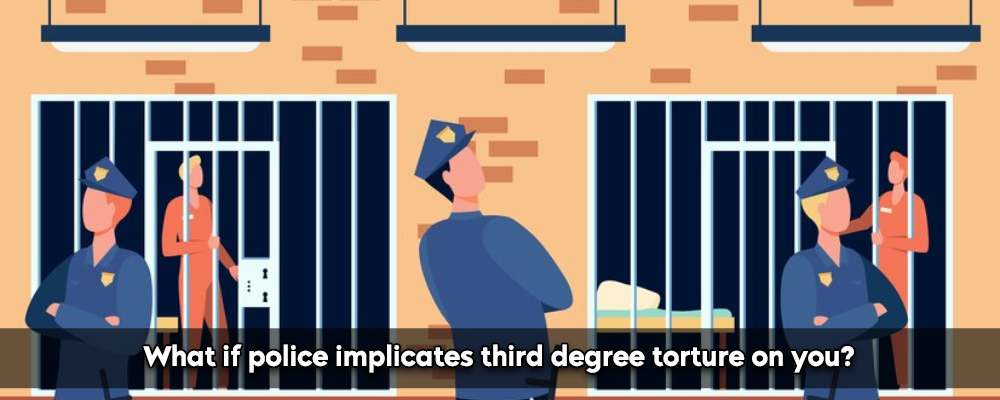After George Floyd passed away in the US, the topic of police violence has lately gained attention again. Soon, a lot of people used social media to draw attention to the issues of torture in detention that existed in their nations.
The story of Jayaraj and Fenix, a father and son team from Tamil Nadu, India, who were beaten while under police custody and ultimately perished, was also highlighted by this wave. They were taken into custody for operating their store after hours without permission, and for a crime that didn’t even call for an arrest in the first place, they were allegedly subjected to severe torture, including sexual assault.
Need A Legal Advice
The internet is not a lawyer and neither are you. Talk to a real lawyer about your legal issue

Third Degree Torture: About
- Third-degree torture refers to the mental and physical abuse that a police officer uses on a suspect in order to get a confession or other piece of information out of them during an interrogation. While it is true that all confessions given to a police officer are not admissible as evidence in a court of law, they are acceptable to some extent in specific situations.
- Incidents of Third-Degree Torture, also known as Custodial Torture make headlines regularly and expose the man in uniform by drawing harsh public criticism. Many police officers disregard the legal requirements in the State Police Manuals, assuming they can get away from employing force against detainees because it will be challenging to prove that they used force against them. These rules restrict police officers from carrying out actions that are deemed to be a violation of authority or infringe on human rights.
Third Degree Torture by Police: Types
The following list includes some common approaches that have historically been connected to third-degree torture:
- Physical Abuse: The inmate may be subjected to beatings, slapping, punching, kicking, nail cutting, or other physical acts of violence.
- Electric Shocks: An especially brutal kind of torture is the application of electric shocks, which are frequently used on vulnerable body parts.
- Burns and Scalding: The detainee’s skin may be burned or scalded by perpetrators using hot objects, hot water, or chemicals.
- Suffocation or Strangulation: Information has been extracted by techniques involving suffocation, such as placing a plastic bag over the head, or strangulation with hands or objects.
- Stress Positions: When detainees are kept in unpleasant or painful positions for prolonged periods of time, it causes them bodily and mental suffering.
- Sleep Deprivation: If someone is kept awake for long periods of time, they may become extremely tired and confused, which may increase their receptivity to information.
- Psychological Torture: Threats, coercion, and mental abuse are examples of psychological torture, which is intended to weaken the detainee’s will or instil dread.
- Sexual Abuse: In certain cases, coercion is achieved by sexual assault or abuse.
- Mock Executions: When detainees are made to feel as though their execution is imminent, it can cause severe psychological distress.
What to Do if Police Torture You?
Filing an FIR
- Although it could be challenging to submit a formal complaint (FIR) against a police officer at the station where they may be assigned, be aware that the police are not allowed to decline to do so in any situation. If they do not agree, submit an application for registration to the Senior Inspector or Station House Officer of that police station.
- As an alternative, you can complain about this officer to a different police station. Territorial jurisdiction is unrestricted.
Private Complaint to the Magistrate
- An FIR is not always required to start a case.
- With legal assistance, you can also submit a private criminal complaint to the magistrate.
The normalization of police brutality in India is a very sad state of affairs, and the current climate of oppressive police behaviour is made worse by the absence of political will to enact reforms. One of the state’s most fearsome branches is supposed to maintain social stability and protection.
One can talk to a lawyer from Lead India for any kind of legal support. In India, free legal advice online can be obtained at Lead India. Along with receiving free legal advice online, one can also ask questions to the experts online free through Lead India.





 Talk to a Lawyer
Talk to a Lawyer